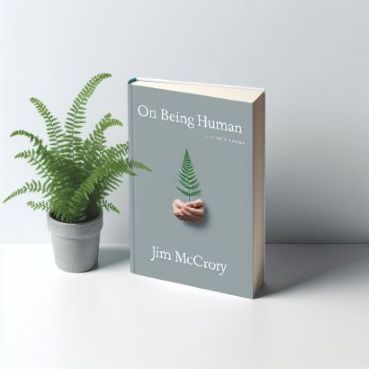
Image generated with the assistance of MicrosoftCopilot
A Future Redress
In the previous blog I wrote about my visit to the Glasgow Necropolis and the small graves that dot its hillsides. Many of these graves belong to children who perished because of one simple, tragic reason: the lack of clean water and decent sanitation. Crowded into damp, narrow tenements and surrounded by overflowing drains, they succumbed to epidemics that we now know could have been prevented by the most basic of public health measures. Behind those early deaths lies a heart-breaking lack of foreknowledge, decisions made by city fathers who failed to look past their own moment into the futures they were shaping.
And as I reflect on that loss, I cannot help but see a new kind of crisis unfolding — one equally born of short-sighted invention and careless enthusiasm. The very material that once promised to make our lives easier and more affordable, plastic, is slowly becoming a kind of invisible weapon. Microplastics now accumulate in our bodies, including in our brains — carried into us by the food we eat, the water we drink, and the air we breathe. Where Glasgow’s insecure slums fostered cholera and typhus, we face a more diffuse and lasting threat, a kind of low-dose toxicity leaking into every cell.
And so, I wonder, much as I do when I look up at those weathered stones in the necropolis: did those inventors ever truly foresee the human cost of their innovations? Did Leo Baekeland, who gave us Bakelite in 1907, have any inkling that more than a century later his plastic descendants would drift into our oceans and be found embedded in the tissues of our children? Could the designers of the atom bomb have imagined that nuclear power would also leave behind a legacy of waste that defies the lifespan of civilisations? In both cases, the power to make and to destroy arrived hand in hand — and in both, the darker consequences took decades to come into focus.
The difference is that Glasgow’s cholera was visible in its suffering, forcing reform. Plastic’s contamination is more subtle, more insidious. It’s a slow constriction, an “unintentional weapon,” lodged in the most private spaces of the human body. And because we cannot see it as we once saw the foul water or crowded rooms, we are tempted to ignore the evidence. But like those long-gone children and their unmarked graves, this new toll will one day demand a reckoning. Future generations may look back on us and wonder how we failed to foresee the cost of the choices we embraced so eagerly.
What this moment requires is the kind of care and forethought that was too long delayed in Glasgow. If we want to spare those who come after us from a new necropolis, one built not of stone and soil, but of invisible particles and mounting illness, we must recognize that progress cannot simply mean invention. It must also mean responsibility, and the will to act before today’s brilliance becomes tomorrow’s burden. Interestingly, the Bible speaks of a judgement period that comes at a time when man is in the process of ruining the planet:
“And the nations were enraged, and Your wrath came, and the time for the dead to be judged, and to give the reward to Your servants, the prophets, and to the saints, and to those fearing Your name, the small and the great, and to destroy those who are destroying the earth." Revelation 11:18 BSB.